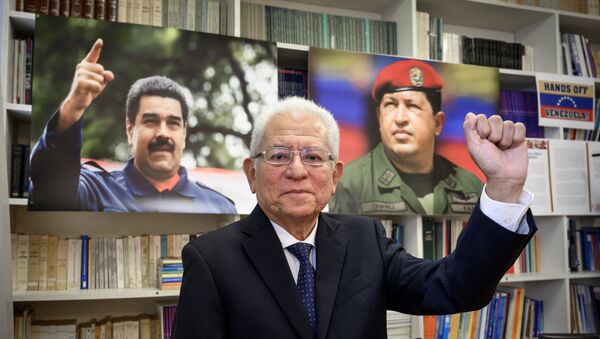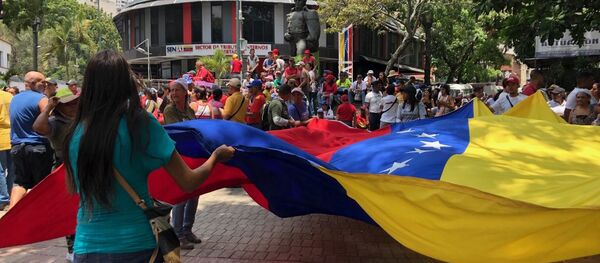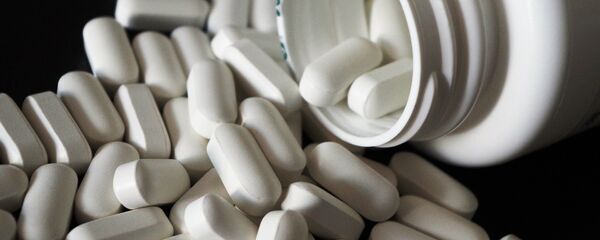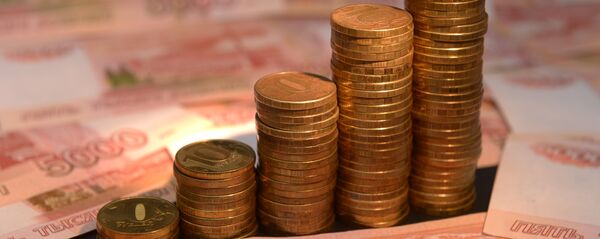18 December 2014: Under the pretext of cracking down on protesters during opposition rallies in February, the US Congress passes Public Law 113-278 to outline the blueprint for sanctioning Venezuela, including the Central Bank of Venezuela (BCV) and state oil firm Petróleos de Venezuela SA (PDVSA), which generates 90 percent of revenues for the South American country.
The bill unilaterally blocks and freezes assets, funds, goods and properties owned by Caracas, as well as suspends entry to or revoked visas and documentation for Venezuelan public, military and diplomatic officials, sparking the current economic, financial and commercial embargo on the Latin American country.
8 March 2015: Former US president Barack Obama converts Public Law 113-278 into Executive Order 13692, also known as the "Obama Decree", which designated Caracas as an "unusual and extraordinary threat to US national security", increasing his power to implement coercive measures used to intervene in Venezuela's internal affairs, and was renewed in March 2016.
July 2016: US bank Citibank stops issuing foreign currency accounts to Venezuelan institutions in the US, affecting the Central Bank of Venezuela (BCV), placing Venezuela with the highest financial risk in the world at 2640 points, despite Caracas paying off 63.6bn in external debt obligations.
August 2016: Portuguese bank Novo Banco ceases dollar operations with Venezuelan banks amid pressure from the US. The Portuguese bank would later suspend $1.2bn in funds transferred by the US in February 2019, at the request of US-backed opposition figure Juan Guaidó.
September 2016: The Venezuelan government agrees to exchange 7.1bn USD in PDVSA bonds to restructure its finances, with three major US risk rating agencies later announcing they will default Caracas if investors enter Venezuelan markets.
READ MORE: Venezuela Oil Output in April Drops to 16-Year Low — US Energy Department
November 2016: US finance firm JP Morgan alleges that Venezuela failed to make payments on PDVSA debt of roughly $404m, which was instead caused by a "technical mistake", according to Torino Capital.
July 2017: Delaware Trust, the PDVSA's bonds payment agent, states that US-based PNC Bank refused to take funds from Caracas, with Citibank later refusing to receive funds used to import 300,000 insulin doses. Swiss bank Credit Suisse would later ban clients from conducting financial transactions in August on behalf of National Assembly president Julio Borges.
24 August 2017: The US imposed additional sanctions on Caracas via EO 13808 which prohibits direct or indirect purchases of securities from the Venezuelan government, including bonds, loans, credit extensions, and others, officially legalising the blockade.
August 2017: Bank of China in Panama announces that it cannot conduct financial transactions in foreign currencies for Venezuela amid pressure from the US Treasury Department and Panama government. The news comes amid a China-Venezuelan oil-for-loans deal struck in May aimed at restructuring the country's finances. Russian banks issue warnings for similar reasons.
READ MORE: How US Sanctions on Venezuela are Threatening the Lives of Sick Children
October 2017: The US blockade prevents Swiss bank UBS, Pfizer, Novartis and others from accepting Venezuela money deposits used for vaccines and medicines by the Revolving and Strategic Fund of the Pan-American Health Organisation, causing a four-month delay in receiving vaccines.
The block follows a 2015 US probe into alleged ties to Venezuelan "money laundering" schemes, forcing 18 Swiss banks to turn over records to the US Department of Justice, despite Venezuela arresting five Citgo officials accused of funnelling money to accounts in the US.
November 2017: Deutsche Bank, the Venezuelan BCV's main correspondent, closes its account. 23 Venezuelan financial operations used for food, medicines and supplies totalling $39m are blocked by international banks. Standard and Poor (S&P) later declares a "selective default" after accusing Venezuela of missing a payment. As the blockade further damages Venezuela's economy, US bond manager Wilmington Trust alleges state electric company Corpoelec of not cancelling $27m in debt interests.
December 2017: European banks return $29.7m in transactions used by the Local Committees for Supply and Production (CLAP) food programme, with JP Morgan delaying $28.1m in funds used to pay for food vessels transporting supplies to Venezuela. Product shortages surface in several states across Venezuela after US banks close a further 19 bank accounts, causing 471,000 vehicle tyres to be retained abroad.
February 2018: The US Treasury Department extends powers of EO 13808, blocking the restructuring of state and PDVSA debts issued on 25 August 2017.
March 2018: The Trump Administration renews Obama-era EO 13692 and EO 13808 for a year, and imposes six new measures aimed at blocking use of the Petro via EO 13827, Venezuela's state cryptocurrency, aimed at blocking the repatriation of dividends from Citgo Petroleum. The order would also prohibit citizens or institutions from using the Petro.
April 2018: The Peruvian Foreign Ministry, acting on behalf of the pro-US Lima Group, announces during the Summit of the Americas that it would launch a group aimed at studying political and economic measures against Venezuela (original statement in Spanish). The US and Colombia agree to increase measures against Caracas.
21 May 2018: The US issues EO 13835 after Venezuelan president Nicholas Maduro is re-elected by 67 percent of the electorate (9m citizens). The order expands the blockade against Caracas and sanctions 20 Venezuelan companies for alleged drug trafficking ties, and blocks the purchase of debt of Venezuelan companies, including the sale, transfer, or granting guarantees to shares of capital owned 50 percent or more by the Venezuelan government, in the US.
The Trump Administration later blocks $9m in supplies for 15,000 hemodialysis patients, with Bogota blocking shipments of 400,000 kilos of food for Caracas' Clap food subsidy programme.
January 2019: President Trump approves sanctions against PDVSA which freezes $7bn in Citgo assets, in addition to roughly $11bn in exports. The UK's Bank of England later announces the extrajudicial seizure of $1.4bn in gold deposited in London as reported by Bloomberg, four days after Venezuelan gold holdings spiked following a swap deal with Deutsche Bank.
January — April 2019: The US blocks Venezuela's MINERVEN gold production and seller via EO 13850, targeting operations in Bandes, including Uruguay Banco Bandes Uruguay SA, Banco de Venezuela SA and others. The measure also blocks PDVSA and over 30 of its oil tankers from 28 January to 12 April, legalising the seizure of assets from Caracas in nations friendly to the US.
17 April 2019: The US Treasury Department blocks dollar operations abroad from Venezuela's BCV, preventing the institution from obtaining funds used to buy medicines and food for its citizens.
Relations have soured between Caracas and Washington since the Trump Administration recognised opposition leader Juan Guaidó as interim president against international law. Mr Guaidó, the US and its allies urged Venezuelan president Nicolas Maduro to step down and seized billion in Venezuelan assets. Maduro has slammed the US, accusing its North Atlantic neighbour of violating international law and orchestrating a coup aimed at seizing Venezuela's natural resources. The Venezuelan government has been backed by China, Russia, Cuba, Bolivia, Turkey and others, all whom have stated Mr Maduro is the Latin American country's only legitimate president. Sanctions have led to the deaths of nearly 40,000 people from 2017 to 2018, and cost the Venezuelan government $30bn in state revenues, according to a scathing April 2019 report from the Centre for Economic Policy and Research.





